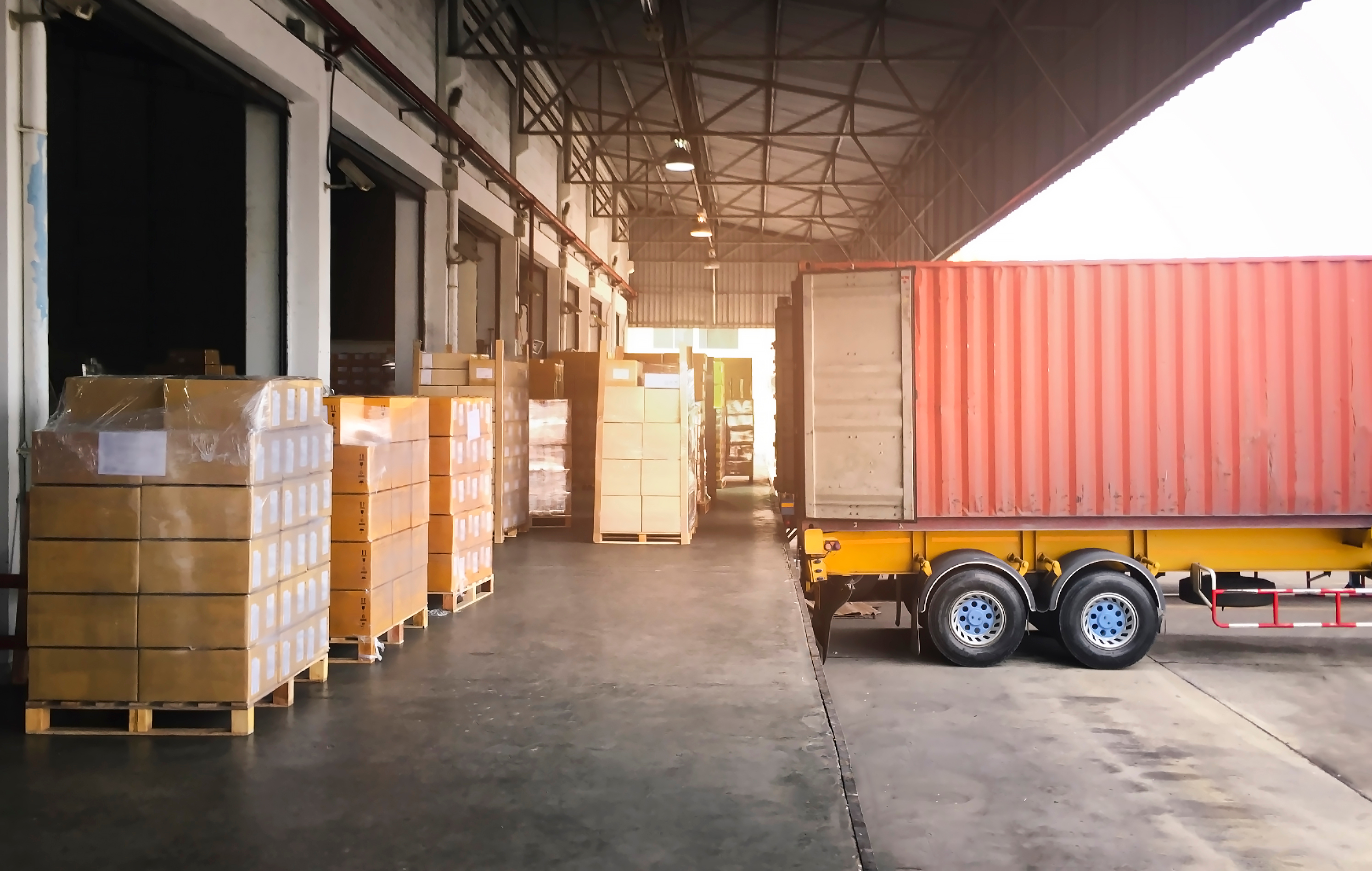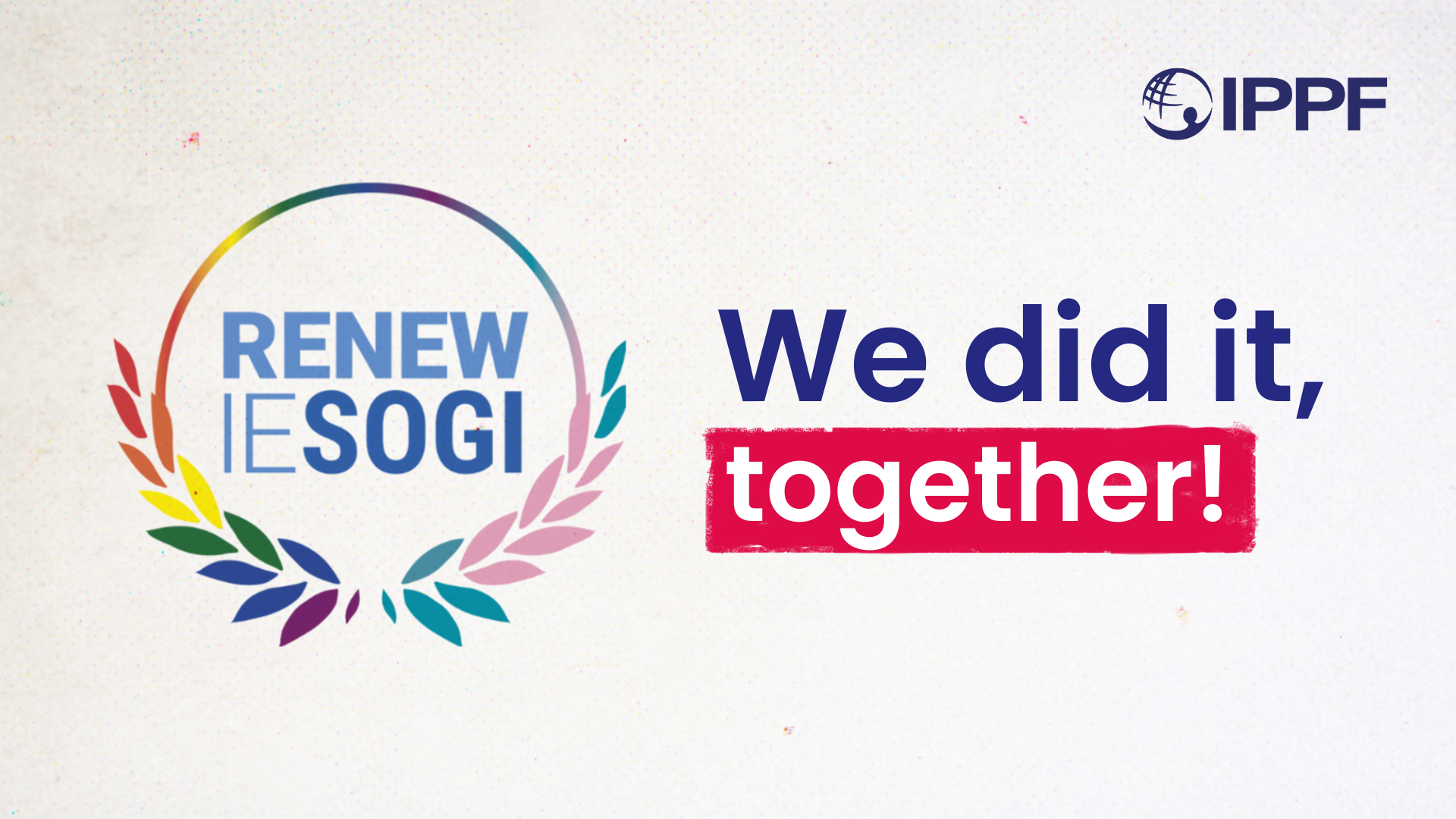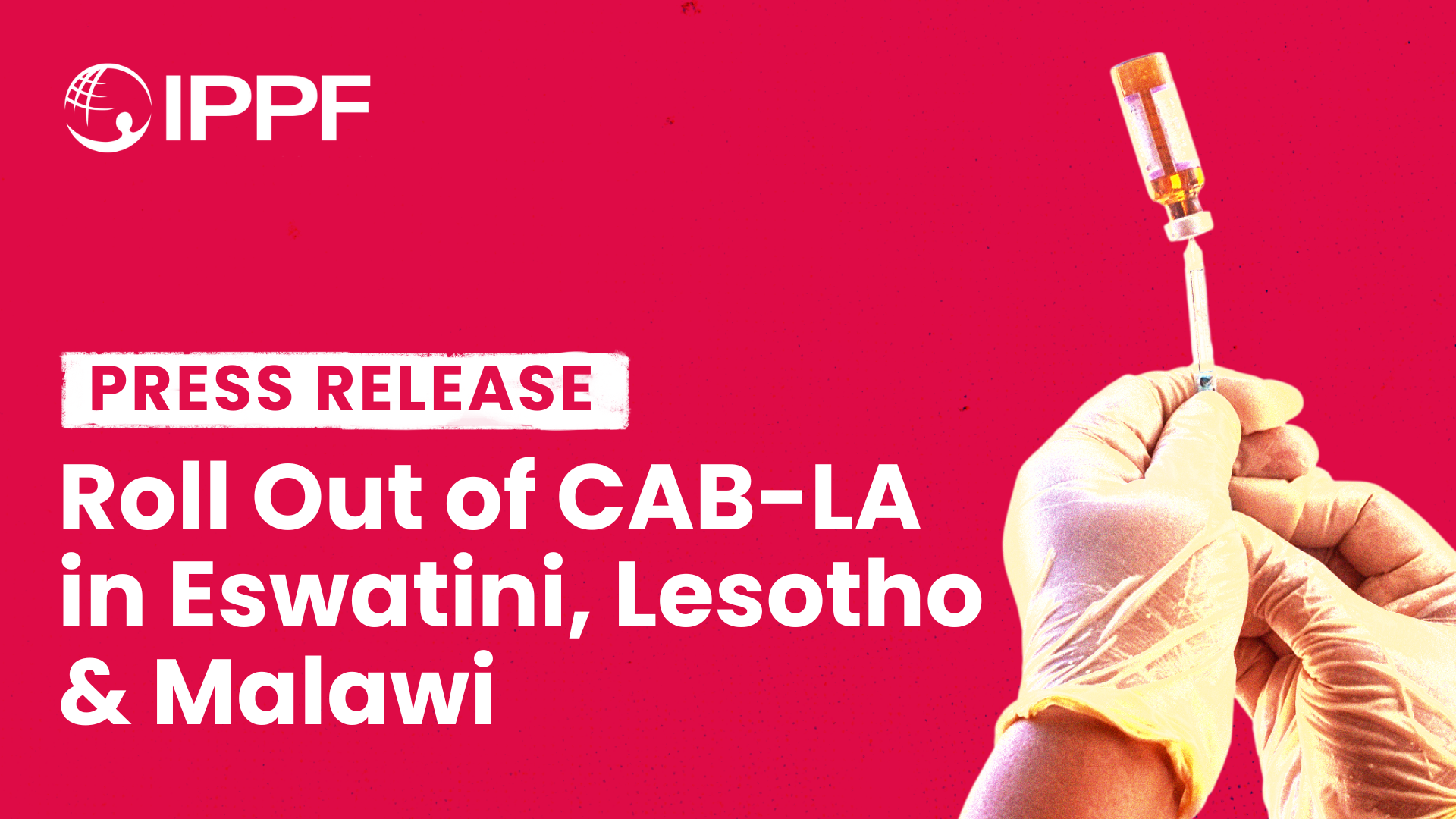Latest press releases
A selection of stories from across the Federation

US Government Expands Global Gag Rule in a Major Escalation of Regressive Foreign Policy
FOR IMMEDIATE RELEASE
For media enquiries
Telephone:
+44 7918 845944Email IPPF:
Email: media@ippf.org

| 05 August 2025
Over 1.4 Million Women and Girls in Africa Left Without Contraception as U.S. Orders Destruction of Global Supply
6 August 2025 - The International Planned Parenthood Federation (IPPF) has learned that over $9.7 million worth of US-funded contraceptives are now set to be incinerated in France. Seventy-seven percent of these essential supplies were earmarked for five countries in the Africa Region - including the Democratic Republic of the Congo (DRC), Kenya, Tanzania, Zambia, and Mali — many of which are already facing severe humanitarian crises. The incineration of these contraceptives will deny more than 1.4 million women and girls access to life-saving care. Rather than reaching the communities who need them most, these essential medical supplies - many of which don’t expire until 2027 to 2029 - are being needlessly and egregiously destroyed.IPPF Member Associations in the affected countries were due to receive a share of these contraceptive stocks. Instead, they are now facing a sharp decline in supply following the decision to incinerate them. More than 40% of the total value of the contraceptive stockpiled in Brussels was allocated for shipment to Tanzania alone. Dr Bakari Omary, Project Coordinator at UMATI, IPPF’s Member Association in Tanzania, said: “We are facing a major challenge. The impact of the USAID funding cuts has already significantly affected the provision of sexual and reproductive health services in Tanzania - leading to a shortage of contraceptive commodities, especially implants. This shortage has directly impacted clients' choices regarding family planning uptake.”This development adds a new layer of outrage to what is already a cruel political decision. These contraceptives were already manufactured, packaged, and ready for distribution. IPPF offered to take them for redistribution at no cost to the US taxpayer, but this offer was declined. The actions of the U.S. administration make it clear that politics trump economics, given the additional costs necessary for transportation, storage, and incineration of these products. “This decision to destroy ready-to-use commodities is appalling and extremely wasteful. These life-saving medical supplies were destined to countries where access to reproductive care is already limited, and in some cases, part of a broader humanitarian response, such as in the DRC. The choice to incinerate them is unjustifiable and undermines efforts to protect the health and rights of women and girls,” said Marie-Evelyne Petrus-Barry, Africa Regional Director of IPPF.IPPF's local partners in Africa will now face increased challenges to deliver essential and life-saving care. According to RHSC, the loss of these supplies is projected to result in 362,000 unintended pregnancies and 110,000 unsafe abortions: Tanzania: 1,031,400 injectable contraceptives and 365,100 implants will not be distributed. These products represent over 50% of USAID annual support to Tanzania's health system and a terrifying 28% of the total annual need of the country.Mali: 1,100,880 oral contraceptives and 95,800 implants will be denied, 24% of Mali’s annual need.Zambia: 48,400 implants and 295,000 injectable contraceptives will be denied to women.Kenya: 108,000 women will not have access to contraceptive implants, 13.5% of its annual need. Nelly Munyasia, Executive Director for the Reproductive Health Network in Kenya (IPPF Member Association): “In Kenya, the effects of US funding disruptions are already being felt. The funding freeze has caused stockouts of contraceptives, leaving facilities with less than five months' supply instead of the required 15 months; reduced capacity building for health workers; disrupted digital logistics and health information systems, and caused a 46% funding gap in Kenya’s national family planning program. These systemic setbacks come at a time when unmet need for contraception remains high. Nearly 1 in 5 girls aged 15–19 is already pregnant or has given birth. Unsafe abortions remain among the five leading causes of maternal deaths in Kenya.” Sarah Durocher, President of Le Planning familial (IPPF’s French Member Association): “We call on the French government to take responsibility and act urgently to prevent the destruction of USAID-funded contraceptives. It is unacceptable that France, a country that champions feminist diplomacy, has remained silent while others, like Belgium, have stepped in to engage with the US government. In the face of this injustice, solidarity with the people who were counting on these life-saving supplies is not optional: it is a moral imperative.”“We will not stay silent while essential care is destroyed by ideology”, continued Marie-Evelyne Petrus-Barry.Notes: IPPF’s local partners in the countries affected include Reproductive Health Network Kenya, Chama cha Uzazi na Malezi Bora Tanzania, Association Malienne pour la Protection et la Promotion de la Famille, Planned Parenthood Association of Zambia, Association Burkinabé pour le Bien-Etre Familial and the Association pour le Bien-Etre Familial/Naissances Désirables.For more information or to interview one of our staff, please contact media@ippf.org or +66628683089. About the International Planned Parenthood Federation IPPF is a global healthcare provider and a leading advocate of sexual and reproductive health and rights (SRHR) for all. Led by a courageous and determined group of women, IPPF was founded in 1952 at the Third International Planned Parenthood Conference. Today, we are a movement of 158 Member Associations and Collaborative Partners with a presence in over 153 countries. Our work is wide-ranging, and includes services for sexual health and well-being, contraception, abortion care, sexually transmitted infections and reproductive tract infections, HIV, obstetrics and gynecology, fertility support, sexual and gender-based violence, comprehensive sex education, and responding to humanitarian crises. We pride ourselves on being local through our members and global through our network. At the heart of our mission is the provision of – and advocacy in support of – integrated healthcare to anyone who needs it regardless of race, gender, sex, income, and, crucially, no matter how remote.

| 07 July 2025
UN renews crucial human rights expert mandate on sexual orientation and gender identity
(Geneva, 7 July 2025) - The Human Rights Council has renewed the mandate of the only human rights expert within the United Nations system that is specifically dedicated to addressing violence and discrimination against lesbian, gay, bisexual, trans (LGBT) and gender diverse persons.Following a campaign by 1,259 non-governmental organisations from 157 States and territories, the UN human rights body adopted the resolution by a vote of 29 in favour, with 15 voting against and 3 abstaining. Thanks to this vote, the Human Rights Council reaffirmed its commitment to combating discrimination and violence against everyone, reminding all States of their obligations towards people of diverse sexual orientations and gender identities.The Independent Expert on protection against violence and discrimination on the basis of sexual orientation and gender identity (SOGI) will now be able to continue the work for three more years. The mandate is currently held by South African scholar Graeme Reid."IPPF warmly welcome the renewal of the UN Independent Expert on SOGI. This role is vital at a time when LGBTQI+ communities around the world are facing growing attacks on their rights and freedoms. As one of the world’s largest providers of sexual and reproductive health services to marginalized communities, we know that bodily autonomy and access to care cannot be taken for granted. We look forward to continuing the work alongside the Independent Expert to ensure that LGBTQI+ people everywhere can live with dignity, make informed choices about their bodies, and access the care they need without fear, violence or discrimination." - Micah Grzywnowicz, Regional Director of IPPF European NetworkCreated in 2016, and renewed in 2019 and 2022, the mandate of the Independent Expert on SOGI has been supported by a growing number of States from all regions. The current resolution to renew the mandate was presented by a Core Group of six Latin American countries – Brazil, Chile, Colombia, Costa Rica, Mexico, and Uruguay - and was co-sponsored by 50 countries from all regions. The Independent Expert is tasked with assessing the implementation of international human rights law, investigating violence and discrimination against LGBT and gender diverse persons, and helping States, UN agencies, other mandates and bodies in the international and regional systems to address them. Since the post was established, three successive mandate holders have conducted official visits to 11 countries, produced 17 reports documenting discrimination on the grounds of sexual orientation and gender identity - including the impact of the criminalisation of same-sex relations between consenting adults, the need to legally recognise a person’s gender, and the situation of LGBT persons who are forcibly displaced, among others - and sent communications documenting allegations of human rights violations to 171 States across all regions.Having secured a renewal for three more years, this mandate will now continue to support initiatives ensuring that LGBT and gender diverse people can live free of discrimination in countries around the world, and to amplify their voices and testimonies in international human rights fora. Civil society worldwide urges all governments to cooperate fully with the Independent Expert in this important work to bring about a world free from violence and discrimination for everyone.

| 27 June 2025
Amid Devastating Budget Cuts, Groundbreaking HIV Prevention Injectable Launches in Eswatini, Lesotho & Malawi
30 June 2025 - The International Planned Parenthood Federation (IPPF) is proud to announce the roll out of CAB-LA (cabotegravir-long acting), a form of pre-exposure prophylaxis (PrEP) for HIV, in Eswatini, and Malawi, and a pilot project in Lesotho - a major milestone in the fight against HIV. IPPF Member Associations (MAs) in the three countries - Family Life Association of Eswatini (FLAS), Lesotho Planned Parenthood Association (LPPA), and Family Planning Association of Malawi ( FPAM) will soon begin to distribute CAB-LA for HIV prevention to individuals who would like to use this form of HIV prevention. CAB-LA, a long-acting injectable PrEP, is a game changer for HIV prevention. PrEP is an HIV prevention method where HIV-negative individuals take medication to significantly reduce their risk of acquiring HIV. Administered every 8 weeks, CAB-LA greatly reduces infection risk and does not rely on remembering to take a daily pill, addressing adherence challenges faced by some people using oral PrEP. This roll-out comes when US budget cuts have severely impacted governments and organizations providing sexual and reproductive health services, HIV prevention, and humanitarian aid. These financial restrictions have significantly impacted access to essential sexual and reproductive health medications globally, compromising HIV prevention and treatment for many, especially those most in need. The arrival of CAB-LA is a major step forward in the fight against HIV/AIDS, providing longer-term protection, a more convenient option, and a discreet alternative to daily pills. Family Life Association of Eswatini, Lesotho Planned Parenthood Association, and the Family Planning Association of Malawi will be providing CAB-LA for PrEP through their static clinics and other public service delivery points. This effort underscores the vital role our MAs play in securing and delivering universal access to sexual and reproductive healthcare. For more information, please contact media@ippf.orgAbout the International Planned Parenthood Federation IPPF is a global healthcare provider and a leading advocate of sexual and reproductive health and rights (SRHR) for all. Led by a courageous and determined group of women, IPPF was founded in 1952 at the Third International Planned Parenthood Conference. Today, we are a movement of 158 Member Associations and Collaborative Partners with a presence in over 153 countries. Our work is wide-ranging, and includes services for sexual health and well-being, contraception, abortion care, sexually transmitted infections and reproductive tract infections, HIV, obstetrics and gynecology, fertility support, sexual and gender-based violence, comprehensive sex education, and responding to humanitarian crises. We pride ourselves on being local through our members and global through our network. At the heart of our mission is the provision of – and advocacy in support of – integrated healthcare to anyone who needs it regardless of race, gender, sex, income, and, crucially no matter how remote.

| 02 April 2025
The Urgent Need to Protect HIV Prevention and Global Health Investments
Joint statement by FCAA, IPPF, and ILGA-World from the Kalavai Partnership31 March 2025 - We call on policymakers, governments, and philanthropy to protect and expand HIV funding and not to turn their backs on vulnerable populations.The world is at a crossroads in the fight against HIV. For decades, dedicated investments in HIV prevention, treatment, and care have saved millions of lives and helped stabilize communities. Yet today, these gains are at risk. Critical funding from the U.S. government and other donor nations is under threat, jeopardizing the very infrastructure that has driven progress.In fact, new analyses published by amfAR and The Lancet demonstrate the catastrophic toll cuts to both the U.S. CDC Division of HIV Prevention and foreign aid from the US, the Netherlands, Britain, and other nations, predicting up to 2.9 million more HIV-related deaths before 2030 and essentially undoing all progress achieved since 2000.This crisis no longer knows borders. Now is the time to act—before we lose ground that cannot easily be regained.HIV Prevention Saves Lives—We Must Not Step BackHIV prevention is one of the most cost-effective and impactful investments in global health. It reduces new infections, alleviates the burden on healthcare systems, and safeguards the well-being of vulnerable communities. U.S. government funding for global HIV programs has been a lifeline for communities disproportionately affected by HIV, including women and children, LGBTQ people, sex workers, and people who use drugs. Yet today, political and financial pressures threaten these programs, putting lives and progress in jeopardy.HIV prevention includes a broad range of essential interventions:Access to PrEP (Pre-Exposure Prophylaxis): A highly effective HIV prevention medication that significantly reduces the risk of transmission.Comprehensive sexual health education: Ensuring individuals have the knowledge and resources to protect themselves and their partners.Harm reduction services: Including needle exchange programs and opioid substitution therapy for people who use drugs.Access to condoms and lubricants: Fundamental tools in preventing the spread of HIV and other sexually transmitted infections.HIV testing and linkage to care: Early diagnosis and immediate access to treatment are key to preventing new infections and achieving viral suppression.Mother-to-child transmission prevention: Ensuring pregnant women living with HIV have access to antiretroviral therapy to protect their newborns.HIV, Global Health Security, and Human Rights Are InseparableHIV prevention is not just about health — it is about global stability, economic resilience, and human rights.Slashing funding for HIV programs weakens public health infrastructure, rolling back decades of hard-won progress and making people worldwide more vulnerable to other global health crises.The fight against HIV is intrinsically linked to sexual and reproductive health and rights, women's health, and LGBTQ rights. For example, the lives of transgender individuals are even more at risk due to the reduction of health and human rights-based services as a result of anti-trans and anti-DEI Executive Orders.Women and girls continue to bear a disproportionate burden of the HIV epidemic, and their health hangs in the balance in the wake of funding cuts. Every week, approximately 4,000 adolescent girls and young women contract HIV, the majority of whom live in sub-Saharan Africa. Pregnant women living with HIV require consistent treatment to prevent mother-to-child transmission, yet funding shortfalls place these essential services at risk. Without sustained investment, millions of women and newborns face heightened health risks, undermining global progress toward ending HIV.Governments and donors must recognize that investing in HIV prevention is an investment in global health security. When we protect and strengthen HIV infrastructure, we also reinforce systems that respond to pandemics, reduce maternal mortality, and promote equity in healthcare.A Call to Action: The Time to Step Up is NowWe have the medical tools - including the addition of long-acting injectables - to end HIV as a public health crisis. We just need the funding and leadership.We call on policymakers in the U.S. government and donor governments worldwide to take urgent action:Sustain and increase funding for HIV prevention, treatment, and care. Public investment is essential to protect the communities most at risk and ensure that we don’t lose ground.Recognize the intersection of HIV with broader human rights issues. Supporting HIV programs also means protecting reproductive health, LGBTQ rights, and gender justice.We also call on philanthropy to lean in, not out. Now is not the time for donors to retreat. The role of private philanthropy has never been more critical in safeguarding communities and mobilizing new resources to fill funding gaps. Every investment today saves lives tomorrow.The Kalavai Initiative — a partnership of Funders Concerned About AIDS (FCAA), the International Planned Parenthood Federation (IPPF), Global Philanthropy Project (GPP), and ILGA World — urges all stakeholders to act with urgency. Lives are at stake. The time to protect and expand HIV funding is now.Join Us in Taking ActionPolicymakers, donors, and advocates: Stand with us to protect public health, human rights, and the future of HIV prevention. Together, we can ensure that decades of progress are not lost, and that every person — regardless of who they are or where they live — has access to the lifesaving care they deserve.About the Kalavai Partners:ILGA World is a worldwide federation of more than 2,000 organisations from over 170 countries and territories campaigning for the human rights of people with diverse sexual orientations, gender identities and expressions, and sex characteristics. https://ilga.orgThe International Planned Parenthood Federation (IPPF) is a global healthcare provider and a leading advocate of sexual and reproductive health and rights (SRHR) for all. Founded in 1952, it is now a movement of 150 member associations and collaborative partners with a presence in over 146 countries. https://www.ippf.org/Funders Concerned About AIDS (FCAA) unites philanthropic leaders to pursue a shared vision of a world without AIDS. Through research, advocacy, and collaboration, we work to mobilize and grow funding for the ever-changing fight against HIV. https://www.fcaaids.org/Global Philanthropy Project (GPP) is a collaboration of funders and philanthropic advisors working to expand global philanthropic support to advance the human rights of lesbian, gay, bisexual, transgender, and intersex (LGBTI) people in the Global South and East. https://globalphilanthropyproject.org/
















